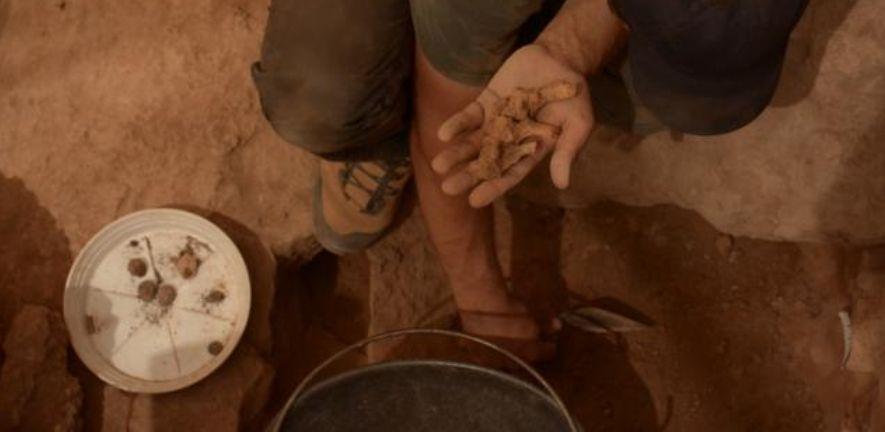
Submitted by Abigail Youngman on Thu, 10/04/2025 - 11:02
The Evolutionary Ecology Group here in Zoology, studies how animals (including our own species) respond and adapt to changing environments.
Sea-faring hunter-gathers
Dr Margherita Colucci, a research associate with the EEG , is one of the authors of a paper published in Nature this week, which shows that humans were able to reach small remote islands long before this was previously thought possible.
The paper describes new evidence that hunter-gatherers could cross at least 100km of open water to reach the Mediterranean island of Malta 8,500 years ago, a thousand years before the arrival of the first farmers. The paper documents the oldest true long-distance seafaring in the Mediterranean, before the invention of boats with sails - an astonishing feat for hunter-gatherers likely using simple dugout canoes.
The research was led by Professor Eleanor Scerri of the Max Planck Institute of Geoanthropology (MPI-GEA) and the University of Malta, where Dr Colucci is also a visiting postdoc with the Human Palaeosystems Research group. It was supported by Malta’s Superintendence of Cultural Heritage and funded by the European Research Council and the University of Malta’s Research Excellence Award.
Read the paper: Eleanor M.L.Scerri, James Blinkhorn, Huw S. Groucutt, Mathew Stewart, Ian Candy, Ethel Allué, Aitor Burguet-Coca, Andrés Currás, W. Christopher Carleton, Susanne Lindauer, Robert Spengler, Kseniia Boxleitner, Gillian Asciak, Margherita Colucci, Ritienne Gauci, Amy Hatton, Johanna Kutowsky, Andreas Maier, Mario Mata-González,, Nicolette Mifsud, Khady Niang, Patrick Roberts, Joshua de Giorgio, Rochelle Xerri, Nicholas C. Vella. Hunter-gatherer sea voyages extended to remotest Mediterranean islands. Nature (2025). https://doi.org/10.1038/s41586-025-08780-y
Hunter-gatherer gender roles explored
Dr Cecilia Padilla-Iglesias, a Research Fellow with EEG, has written and recorded a podcast for Sapiens SAPIENS Podcast Episodes – SAPIENS, available from Tuesday 15 April, on the evolution of sexual division of labour in hunter-gatherer societies.
When it comes to the division of labour in hunter-gather societies, the stereotype is that men hunt and women gather. When a recent study claimed that women in hunter-gather societies hunt just as much as their male counterparts, the finding made news around the world. The podcast asks why does gender equality in the past matter so much today?
Listen to the podcast (from Tuesday 15 April): SAPIENS Podcast
A perspective on Luca Cavalli-Sforza
Dr Michela Leonardi, a visiting researcher here at the EEG and the Natural History Museum in London, and Dr Margherita Colucci recently published a perspective on the population geneticist Luca Cavalli-Sforza and his legacy in the study of human evolution, in the journal, Human Population Genetics and Genomics.
Luca Cavalli-Sforza (1923-2018) was a pioneer in human evolutionary genetics. Their article explains how he integrated different disciplines to reconstruct the human past and how his work changed our understanding of human evolution. They warn of the limitations of such interdisciplinary analyses and propose directions research following on from Cavalli-Sforza’s might take.
Read the article: Colucci M, Leonardi M, Hodgson J, Stringer C, Scerri E. The legacy of Luca Cavalli-Sforza on human evolution. Hum Popul Genet Genom 2025; 5(1):0001. https://doi.org/10.47248/hpgg2505010001
Image: Malta Mesolithic: Remains found at the site during excavations. Photo credit: Eleanor Scerri
